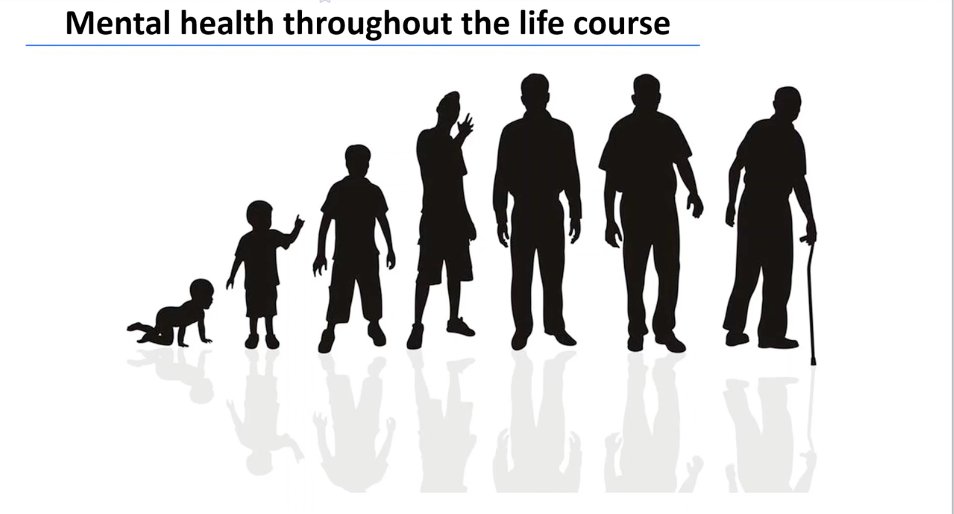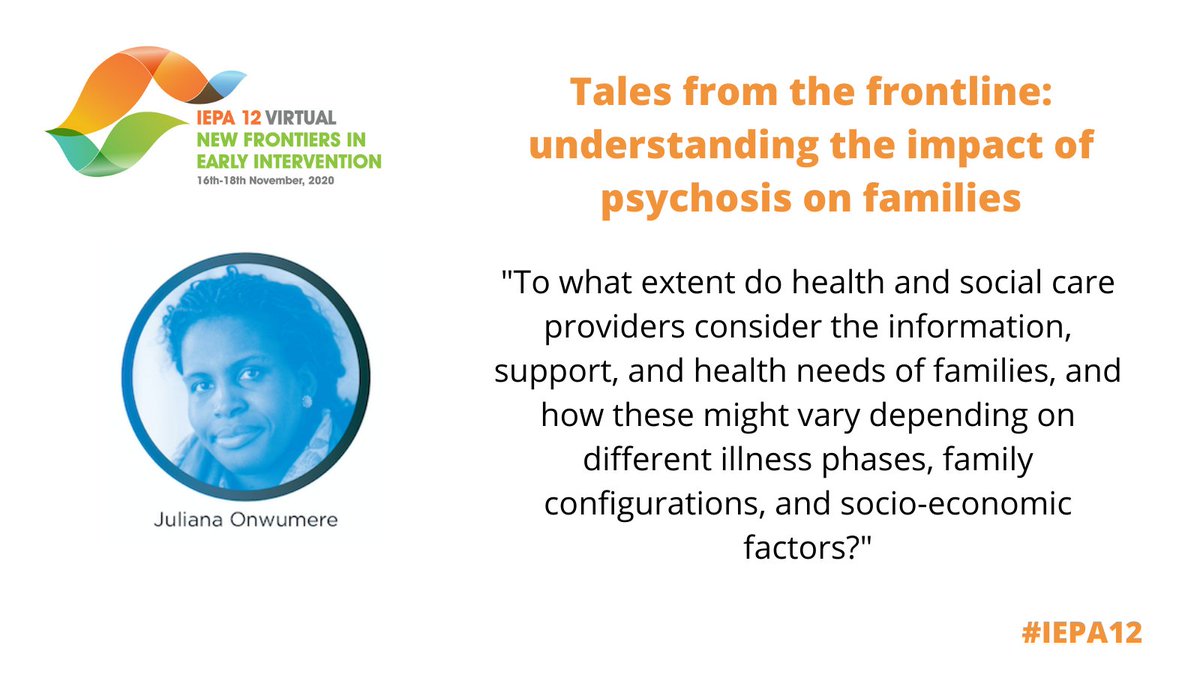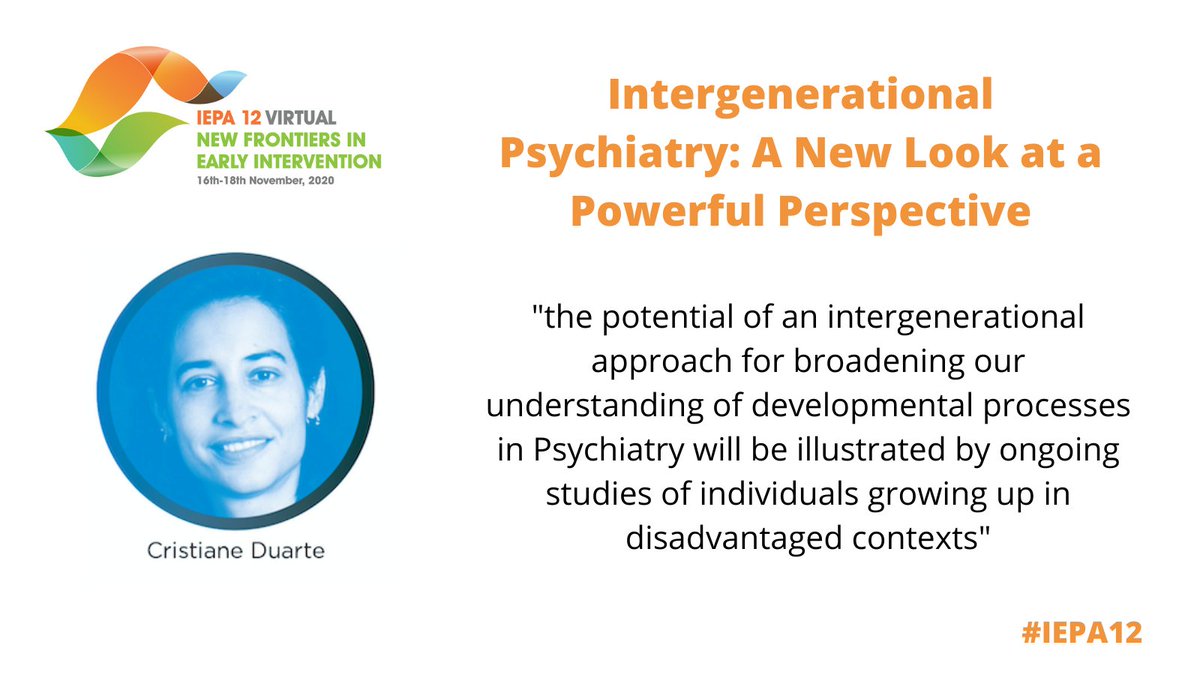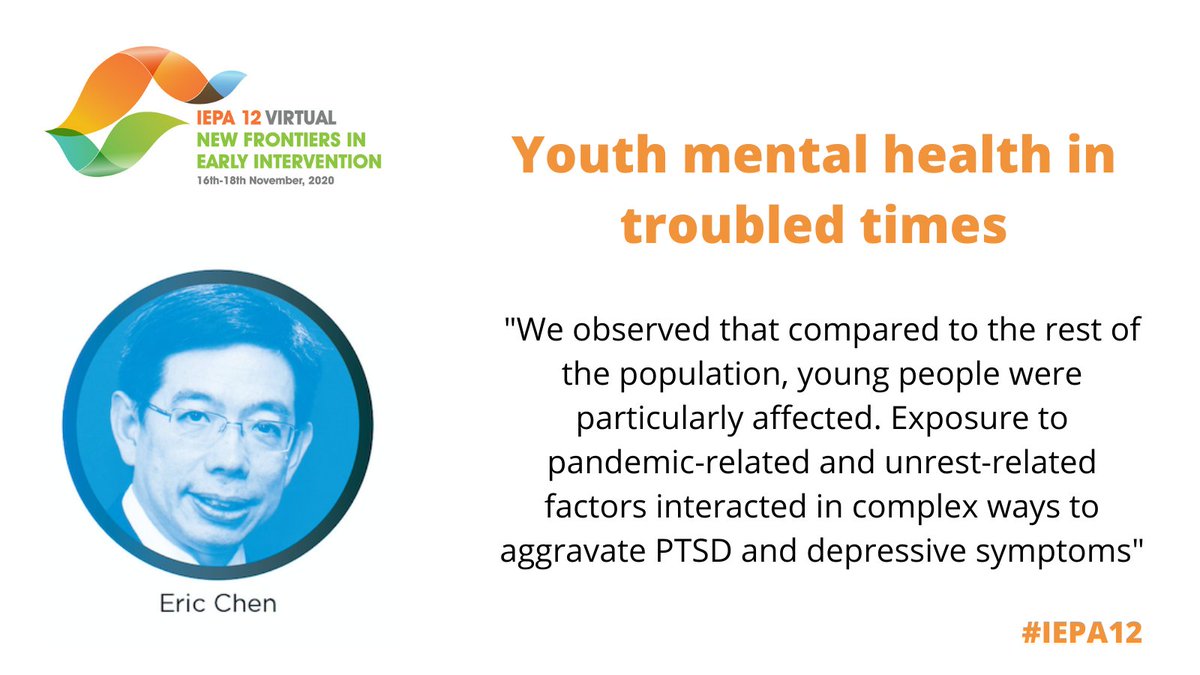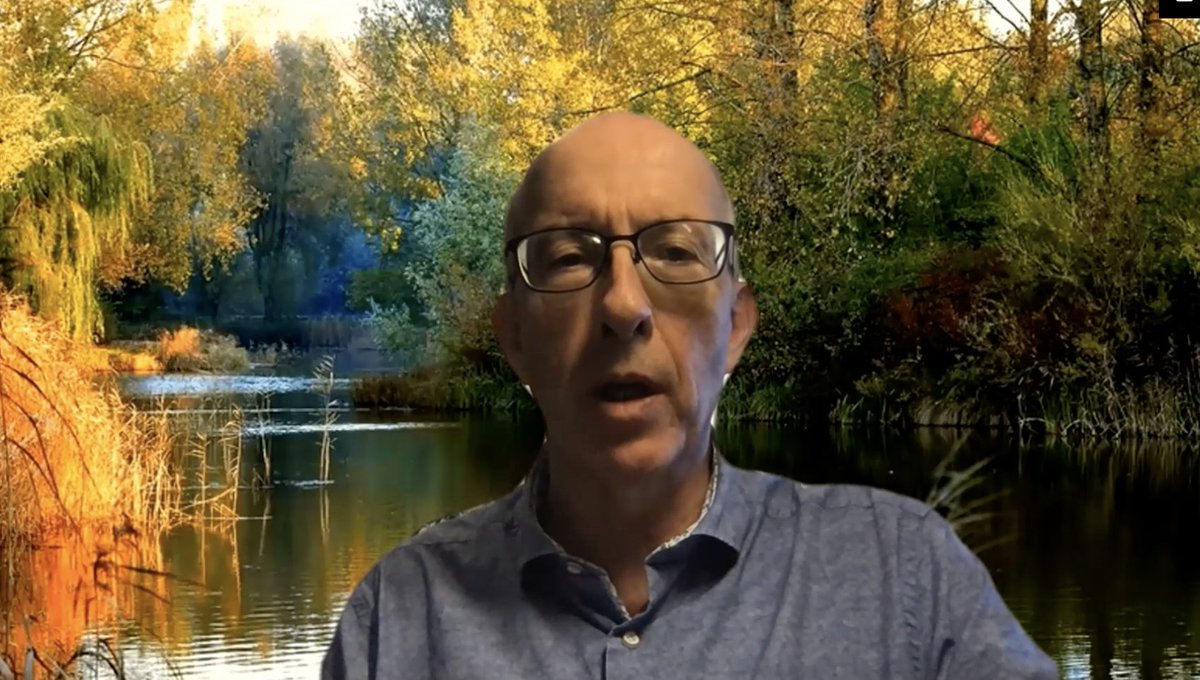
And now it’s time for our final #IEPA12 keynote from Rodrigo A Bressan @RodrigoAffonse1 who is going to talk about Widening the clinical and geographical frontiers of neurodevelopmental studies - the Brazilian High Risk Cohort Study 

We’ve heard this statistic a few times during #IEPA12
75% of mental disorders start before age 18. Bressan adds that 50% of mental disorders start before age 14.
So “we need to understand the biology very early on, not after onset”.

75% of mental disorders start before age 18. Bressan adds that 50% of mental disorders start before age 14.
So “we need to understand the biology very early on, not after onset”.


When we start identifying people with symptoms we don’t have good predictors of trajectories, says Bressan
#IEPA12
#IEPA12
Early intervention focus #IEPA12 
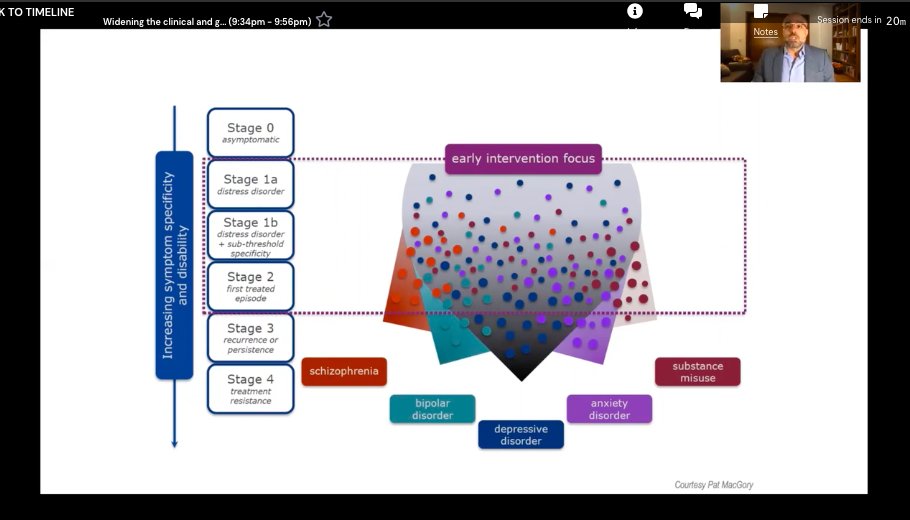
2.2 billion children on Earth, 90% in LMICs, 50% in poverty
Neuropsychiatric disorders account for 15-30% of DALYs
There’s a huge knowledge gap about mental health in LMICs (90% of RCTs take place in high income countries)
doi.org/10.1016/S0140-… #IEPA12
Neuropsychiatric disorders account for 15-30% of DALYs
There’s a huge knowledge gap about mental health in LMICs (90% of RCTs take place in high income countries)
doi.org/10.1016/S0140-… #IEPA12
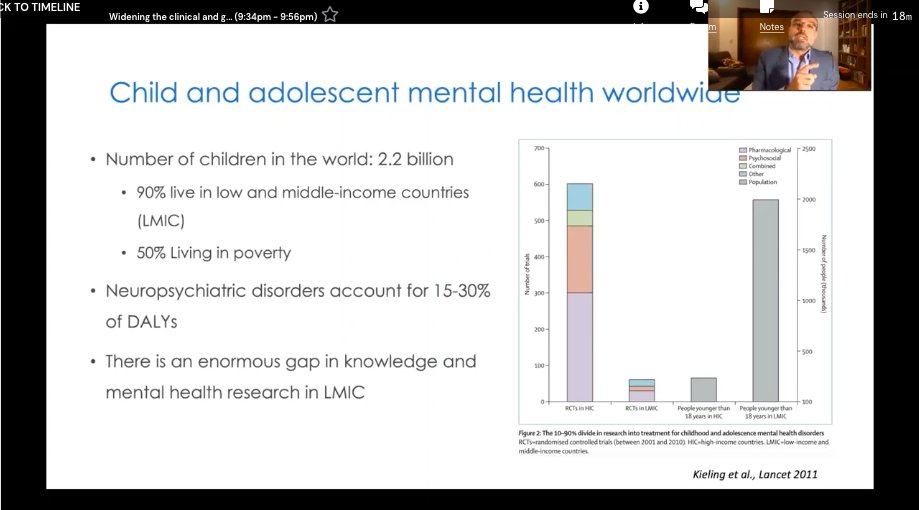
Social and environmental factors in LMIC are widespread and have unequal distribution
doi.org/10.1016/j.bpsc… #IEPA12
doi.org/10.1016/j.bpsc… #IEPA12
The Brazilian High Risk Cohort Study for mental conditions has been running for 10 years #IEPA12
Now, Bressan focuses on 'The Brazilian High Risk Cohort Study' for mental conditions has been running for 10 years #IEPA12
More details for all time-points #IEPA12 

81% of children with mental disorders had not received mental health treatment in the past. Mixed race children were significantly more likely to have unmet needs. doi.org/10.1176/appi.p… #IEPA12 

The cost associated with subthreshold mental disorder is almost as big as (85%) the total cost of the mental disorder
doi.org/10.1080/096382… #IEPA12
doi.org/10.1080/096382… #IEPA12
“Children’s positive attributes are associated with lower levels of negative school outcomes. Positive attributes act both independently and by modifying negative effects of low intelligence and high psychiatric symptoms on educational outcomes” jaacap.org/article/S0890-… #IEPA12
“We conclude that the period of 7-15 years of age is crucial for the development of both the Default Mode and Control networks”. Bressan is talking about the functional brain trajectories work done as part of the Brazilian High Risk Cohort Study doi.org/10.1016/j.jpsy… #IEPA12 

“These results suggest that changes in functional network dynamics during neurodevelopment may provide unique insights regarding pathophysiology”
doi.org/10.1002/hbm.22… #IEPA12
doi.org/10.1002/hbm.22… #IEPA12
“Our findings suggest that child psychopathology seems to be associated with delayed maturation of the DMN (default mode network)”, Bressan says #IEPA12
doi.org/10.1111/jcpp.1…
doi.org/10.1111/jcpp.1…
He adds, “aberrant ventral striatum functional connectivity specifically predicts future risk for depressive disorder”
doi.org/10.1176/appi.a… #IEPA12
doi.org/10.1176/appi.a… #IEPA12
Ecological momentary assessment (EMA) studies led by Pedro Pan have shown that people with poor mental health consistently mark down their sadness VS. happiness
#IEPA12
#IEPA12
Ratings included in the study #IEPA12
Challenging during the circumstances and no F2F measurements, adds Bressan.
Challenging during the circumstances and no F2F measurements, adds Bressan.

The Coronavirus Health Impact Survey is also using Ecological momentary assessment and the data from this will be published soon #IEPA12 

Evidence are expected soon, says Bressan #IEPA12
Conclusions from Bressan
-We need to conduct neurodevelopment studies in LMIC where 90% of young people live
-Evidence on functional brain maturation and psychiatric symptoms is growing
-COVID-19 data in young Brazilian people is forthcoming
#IEPA12
-We need to conduct neurodevelopment studies in LMIC where 90% of young people live
-Evidence on functional brain maturation and psychiatric symptoms is growing
-COVID-19 data in young Brazilian people is forthcoming
#IEPA12
Q from the audience: What do you think we should do to increase the N of studies in countries that have less access to funding?
Bressan highlights the importance of centres of technology and how these can make a huge help. #IEPA12
Bressan highlights the importance of centres of technology and how these can make a huge help. #IEPA12
He adds, researchers can start off with a small pot of money and be flexible. Flexibility is an advantage for LMICs. Pressure for change and funding to policymakers and the government is also a factor to gain substantial funding.
#IEPA12
#IEPA12
Next Q on retention rates: "How do you manage to keep participants for such a long time?" Bressan says, he was inspired by @L_Arseneault who was one of the consultants for the study. #IEPA12
As researchers, we should use all possible strategies to recruit and maintain people in our studies, especially if coming from LMICs with massive N of general population, and keep an active relationship with them, Bressan says.
#IEPA12
#IEPA12
Could researchers do this study multi-nationally? Bressan says, this is something researchers could surely do and would be very interesting to see emerging findings.
#IEPA12
#IEPA12
Last Q for today on differences between the cohorts in the two cities, Bressan expresses the difficulty during social distancing to understand these differences across populations.
#IEPA12
#IEPA12
That's the end of the #IEPA12 Q&A for this talk. Interesting stuff! 🎓
• • •
Missing some Tweet in this thread? You can try to
force a refresh


